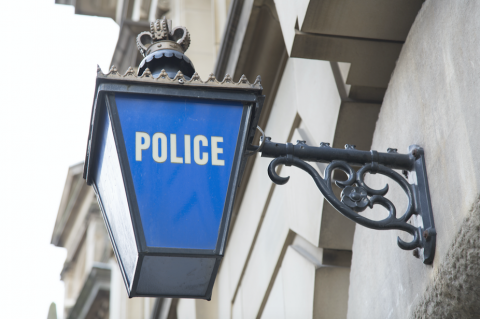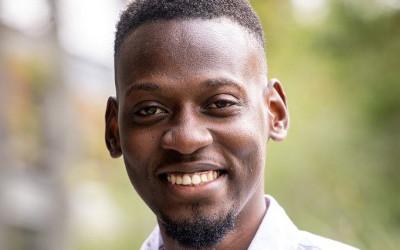Here’s the truth about false accusations of sexual violence

Why didn’t these women speak up sooner? This was asked time and time again during the recent public furore around sexual harassment, violence and abuse. Underlying the question is a persistent uncertainty about the credibility of victims – a concern with identifying what is true and what is false.
As women speak out, some have been met with explicit counter accusations that their descriptions are untrue. Others have been served with a defamation case which has resulted in the Solidarity Not Silence campaign to raise funds to fight the ensuing legal battle.
What’s clear is that the spectre of false allegation continues to dog the reporting of sexual violence. There remains a public impression that false allegations are common and that innocent people suffer as the result of being wrongfully accused.
The evidence on false allegations fails to support public anxiety that untrue reporting is common. While the statistics on false allegations vary – and refer most often to rape and sexual assault – they are invariably and consistently low. Research for the Home Office suggests that only 4% of cases of sexual violence reported to the UK police are found or suspected to be false. Studies carried out in Europe and in the US indicate rates of between 2% and 6%.
It’s important to recognise that even official statistics on false reporting can and have been inflated by other factors. Sometimes police record cases as “no crime” or “unfounded”. This can happen when it’s difficult to attain sufficient corroborating evidence. There is, however, a big difference between the inability to demonstrate in court that an offence has happened and claiming that these cases are false. These sorts of cases have nevertheless been conflated with false allegations.
False allegations have also been conflated with other kinds sexual violence complaints that have been logged as “no crime”. For example, sometimes people contact the police because they are worried that a crime might have been committed. Sometimes these concerns are raised with the police by a third party (a friend, relative or partner). Sometimes people contact the police because they have no memory of a period of time and are worried something may have been done to them. People often express relief when the results of medical examinations show no evidence of assault. These are not cases of false allegation. Despite this, there hasn’t always been a way of distinguishing these cases from false complaints when logging incidents as “no crime”.
Police forces and politicians are also under considerable pressure to lower crime rates. The “no crime” category can be used to remove difficult cases from the crime statistics. In the UK, when certain police forces have had their “no crime” rate monitored for consistency with Home Office guidance, the figures have dropped. This suggests they might have been reporting figures inaccurately before being monitored.
What is also infrequently talked about is that the rates for false allegations of sexual violence are no higher than those reported in other categories of crime. Even so, it’s fair to say that victims of other crimes (such as theft or burglary) are not so routinely treated with suspicion as are the victims of sexual violence.
 By contrast… Shutterstock
By contrast… Shutterstock
A popular response to evidence on the rarity of false allegations is that even if they are uncommon, they do happen. This is taken as reason enough to be on guard. However, research suggests that the majority of false claims do not name an alleged perpetrator – they’re more likely to be relatively vague accusations about a stranger. False allegations also tend to be identified very early on in the investigative process, often by an admission from the complainant. Given this, the widespread concern that false allegations are rife, that they damage the life and reputation of the innocent, is often a red herring.
The bigger question
The weight and importance given to the issue of false allegation is surprising given how prevalent sexual violence is. For example, a recent large-scale study surveying 42,000 women found that up to 21% of women in the EU had experienced sexual harassment in the preceding 12 months. Estimates for the UK were higher at 25%. It’s likely that these figures are an underestimate given that research also suggests women often choose not to call their experiences “sexual harassment”.
This has also been found to be the case with other kinds of sexual violence. Indeed, women choose not to label their experiences using the language of sexual violence, even when their responses on questionnaires clearly marry with official definitions of it.
The reasons for this are complex and varied. Some women see their experiences as a normal part of everyday life – something that they have they simply have to deal with. Others worry about the repercussions if they do report incidents. This includes the potential impact on their professional standing, their ability to get work, their relationships and their personal reputation.
 The importance given to the issue of false allegations diverts attention away from questions that are ultimately more instructive for preventing sexual violence. And in fact, asking why reports of sexual harassment and violence are treated with suspicion may bring us closer to understanding what we can do to lift the barriers to reporting and seeking successful redress. It will also ultimately bring us closer to understanding the conditions in which sexual harassment and violence are enabled.
The importance given to the issue of false allegations diverts attention away from questions that are ultimately more instructive for preventing sexual violence. And in fact, asking why reports of sexual harassment and violence are treated with suspicion may bring us closer to understanding what we can do to lift the barriers to reporting and seeking successful redress. It will also ultimately bring us closer to understanding the conditions in which sexual harassment and violence are enabled.
Lisa Lazard, Senior Lecturer in Psychology, The Open University.
This article was originally published on The Conversation. Read the original article.
Quarterly Review of Research
Read our Quarterly Review of Research to learn about our latest quality academic output.

Contact our news team
For all out of hours enquiries, please telephone +44 (0)7901 515891
Contact details